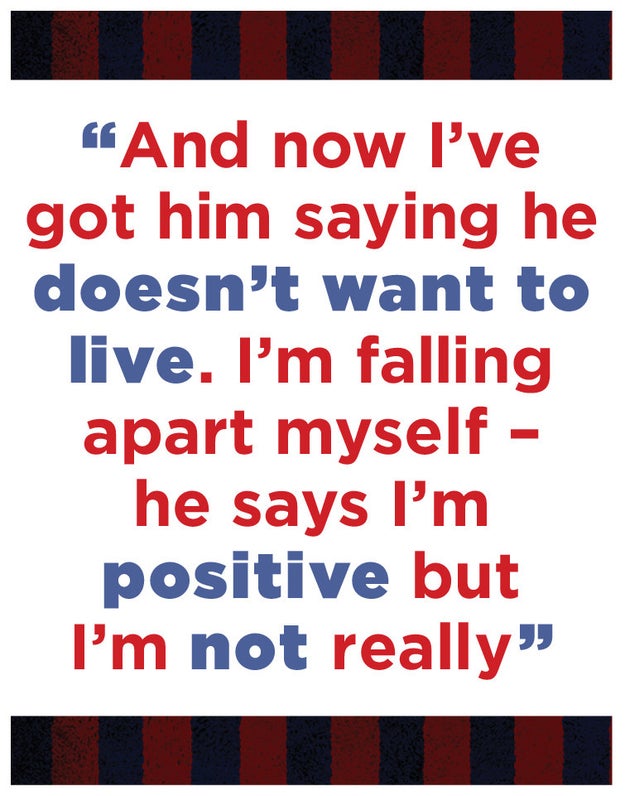Case: R (Howard League for Penal Reform and Prisoners’ Advice Service) v Lord Chancellor
Where: Court of Appeal, London
When: 2pm on Tuesday 31 January
Cuts to legal aid for prisoners are unfair and unlawful, and have coincided with a deterioration in safety in prisons across England and Wales, the Court of Appeal will hear in the course of a two-day hearing next week (Tuesday 31 January)., three Court of Appeal judges will finally hear the charities’ full arguments challenging the cuts.
The two charities – the Howard League for Penal Reform and the Prisoners’ Advice Service (PAS) – won the right to challenge the government’s decision to cut legal aid for prisoners, including children back in July 2015,
Since the cuts came into force back in Dec2013, violence and self-injury in prisons have risen to record levels. Almost 300 people have lost their lives through suicide.
More prisoners than ever before have called the Howard League and PAS to seek help. Calls to the two charities’ advice lines have increased by almost 50 per cent since the cuts were imposed.
The impact of the policy has been far-reaching:
“For a proportion of those prisoners the removal of legal aid makes
it impossible for them to engage fairly in decision making processes
that will have a huge impact on their lives, rendering those decision
making processes inherently unfair.”
......................................................................................................................
There has been a dramatic decline in standards and this has brought rise in a numbers unsafe
prison's. Inspections found that outcomes for prisoners safety was poor
in many prisons. There is various explanations, such as the the impact of reductions in staff numbers and the IPP Prisoner and a changing
population. However, in
practice, there had been far too little detailed analysis of trends,
root causes or intelligence. in
practice it also comes down to problems the security-related
information reports undermined any practical active way to address the
issues.
Model,s were not fully acted on leading to a direct impact on the ability of prisoners to access activities, learning and training . offender supervisors contact with prisoners was severely limited. Delays in processing release plans Most prisoners not having an up-to-date offender assessment system (OASys) assessment. Many prisoners were denied the opportunity to progress. There was a clear need for the leadership of the prison and get a grip of the problems facing them and move away from merely reacting to events.Of course staff shortages have had an impact on many areas of service delivery however poor response and lack of deadline and inspection recommendation not acted on HAS seriously resulted in the unsafe prison stands standards
who was accountable of the impact of benchmarking staff shortages?certainly the case that staff shortages contributed to the restricted restricted regime that we have now. prison need to develop plans to address the greatest challenge and accept charges for there failings.
Williams
prisoner has recently sent me in writing his permission for me to share his life story to whoever may be able to help him). I believe, that if the IPP prisoners were all paroled out immediately if they have exceeded the initial tariff then it would be tantamount to the Government admitting the initial sentence, passed into law by Blunkett when Blair was PM, was inhumane and wrong then the Government would be found liable for massive compensation. This is why the prisoners have been abandoned. It is taking up so much of the Parole Boards time to review them each year and also to stage oral hearings - but they are 'voluntary' and cheaper for the Government than paying out for a legal action.
Williams
Charles
Dear Katherine
But why are you in support of the IPP situation? Has someone you care about been affected?I really would like to understand why you have given heart and dedication to the IPP situation; and I don't make judgement, I just would like to see your reasons as then I'd understand better. I'm kind of odd really; I like to know the energy that I am prepared to freely give is being given because its time to let that which is be as it should be. Again I can't just explain, far too much to explain anyway..
How did you get to be in these meetings? What is it that you do that enables you to get to such high places? And again I only ask as its important for me to understand the bigger picture.
Best wishes
Charles
Debbie
Im a foster carer for a young man who was given an IPP sentence at 17 and is still in prison at 27. He was in care from 2yrs and had a failed adoption at 8yrs. I would be happy to talk to the media.
Where: Court of Appeal, London
When: 2pm on Tuesday 31 January
Cuts to legal aid for prisoners are unfair and unlawful, and have coincided with a deterioration in safety in prisons across England and Wales, the Court of Appeal will hear in the course of a two-day hearing next week (Tuesday 31 January)., three Court of Appeal judges will finally hear the charities’ full arguments challenging the cuts.
The two charities – the Howard League for Penal Reform and the Prisoners’ Advice Service (PAS) – won the right to challenge the government’s decision to cut legal aid for prisoners, including children back in July 2015,
Since the cuts came into force back in Dec2013, violence and self-injury in prisons have risen to record levels. Almost 300 people have lost their lives through suicide.
More prisoners than ever before have called the Howard League and PAS to seek help. Calls to the two charities’ advice lines have increased by almost 50 per cent since the cuts were imposed.
The impact of the policy has been far-reaching:
- It means that a prisoner who is being considered for transfer to an open prison, but not release, cannot get legal representation unless they pay
- It means that prisoners who are stuck in the system cannot get legal help to access the courses they need to become safe for release
Katherine Gleeson Founder of Dyslexia increase awareness https://www.facebook.com/groups/bowde/?ref=bookmarks
"Those with Dyslexia are Let
down by the schools system that Teaches a one way or no way fits all
education system .Then you cant be surprised they can get caught up in the
criminal justice system that fails them again "
http://www.prisonreformtrust.org.uk/uploads/documents/NOKNL.pdfhttp://www.prisonreformtrust.org.uk/projectsresearch/mentalhealth
Frances Crook, Chief Executive of the Howard League for Penal Reform, said: “At a time when prisons are out of control, access to justice is more important than ever.
“We currently have a situation where a child or
mentally ill person can be denied the option of asking for funded
representation, even when they are struggling to progress through the
convoluted prison system. This is unjust and must be challenged.”
Deborah Russo, Joint Managing Solicitor of the Prisoners’ Advice Service, said:
“We are finally before the Court of Appeal on this important case and
sincerely hope the Court will be able to see the plight of prisoners and
how these swingeing cuts have so severely curtailed their ability to
access justice.”
......................................................................................................................
Unsafe Prison's
Model,s were not fully acted on leading to a direct impact on the ability of prisoners to access activities, learning and training . offender supervisors contact with prisoners was severely limited. Delays in processing release plans Most prisoners not having an up-to-date offender assessment system (OASys) assessment. Many prisoners were denied the opportunity to progress. There was a clear need for the leadership of the prison and get a grip of the problems facing them and move away from merely reacting to events.Of course staff shortages have had an impact on many areas of service delivery however poor response and lack of deadline and inspection recommendation not acted on HAS seriously resulted in the unsafe prison stands standards
who was accountable of the impact of benchmarking staff shortages?certainly the case that staff shortages contributed to the restricted restricted regime that we have now. prison need to develop plans to address the greatest challenge and accept charges for there failings.
Comments
Williams
prisoner has recently sent me in writing his permission for me to share his life story to whoever may be able to help him). I believe, that if the IPP prisoners were all paroled out immediately if they have exceeded the initial tariff then it would be tantamount to the Government admitting the initial sentence, passed into law by Blunkett when Blair was PM, was inhumane and wrong then the Government would be found liable for massive compensation. This is why the prisoners have been abandoned. It is taking up so much of the Parole Boards time to review them each year and also to stage oral hearings - but they are 'voluntary' and cheaper for the Government than paying out for a legal action.
Sincerely,
Williams
Alb
Point
regarding release of safe ipp prisoners noted. However, the parol board
are far from independent particularly as they rely hand and foot on
being spoon fed information about the prisoner by the prison system,
namely prison psychologist. This as a consequence influences OM and OS
recommendations for the prisoner. Risk assessments on ipp prisoners
generally tend to nit pick and find petty faults, when In fact post
tariff detention/imprisonment is strictly reserved for protecting the
public against commission of further specified offences. In Robert's
(2016) lord justice Thomas clearly expressed in his judgement that the
government could invoke provisions in LASPO 2012 that will allow them
sentence conversation for ipp prisoners without offending the rule of
law. What do you think of that?
Gray
my friend, was born and brought up, put in
care and then arrested and convicted. He has been in at least 8 prisons in the
12 years he has been in jail and is currently in the Norfolk area.I
am now living in the suburbs of Birmingham, so if any of these
locations are useful now or in the future I would be pleased to assist.
We have written to various MPs and Home Secretaries over the years
Peterson
Yes my brother has been ipp almost 10 yrs after only
getting a recommendation of 5 only, he behaved & complied with all he had
too now he's suffering from major depression because he can't get out. Our
father died last year & this has affected him so much .
Abbey
my son who has been in prison for nearly 10
and a half years on ipp he never hurt or wounded anyone he did threaten they could not interview him for two
days he was that out of it .my son he got so frustrated being told he
was a danger to the public
Charles
Dear Katherine
But why are you in support of the IPP situation? Has someone you care about been affected?I really would like to understand why you have given heart and dedication to the IPP situation; and I don't make judgement, I just would like to see your reasons as then I'd understand better. I'm kind of odd really; I like to know the energy that I am prepared to freely give is being given because its time to let that which is be as it should be. Again I can't just explain, far too much to explain anyway..
How did you get to be in these meetings? What is it that you do that enables you to get to such high places? And again I only ask as its important for me to understand the bigger picture.
Best wishes
Charles
Debbie
Im a foster carer for a young man who was given an IPP sentence at 17 and is still in prison at 27. He was in care from 2yrs and had a failed adoption at 8yrs. I would be happy to talk to the media.
http://www.nationalpreventivemechanism.org.uk/wp-content/uploads/2017/01/NPM-Detention-Population-Data-Mapping-Project-FINAL.pdf
http://howardleague.org/news/court-of-appeal-to-hear-charities-challenge-to-legal-aid-cuts-for-prisoners/








